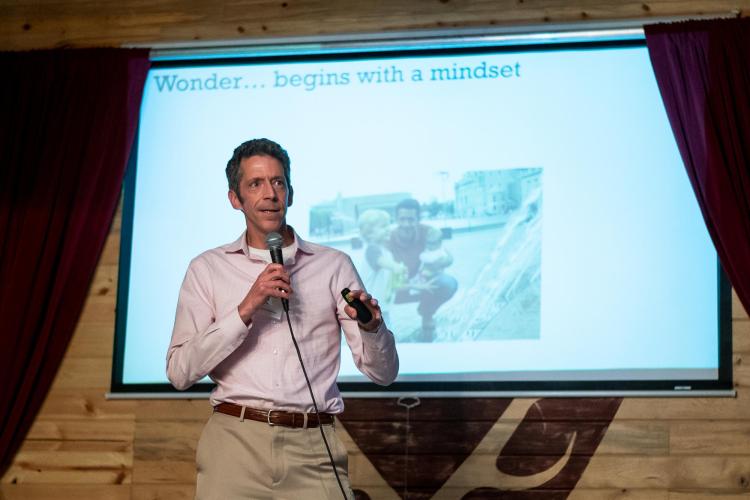‘Mobile money’ has been a game-changer in developing countries, but it may not be serving those who need it most
Since its emergence in the late 2000s, “mobile money,” a form of digital currency, has been a game-changer throughout the developing world for people with little savings and no access to formal banking systems. Even in rural areas of Africa and Asia, local agents representing large mobile telephone operators offer a secure, inexpensive way to store or transfer money instantly over great distances using only a phone.
A recent study co-authored by two researchers from the Leeds School of Business found that the thriving mobile money industry is well-positioned to serve those in poverty—but only up to a point.
Leeds researchers David Drake and Gloria Urrea, along with co-author Karthik Balasubramanian of the Howard University School of Business in Washington, D.C., analyzed data from thousands of mobile money operators in Kenya and Uganda, two sub-Saharan African countries with robust mobile money markets.

David Drake. (Credit: Nathan Thompson/CU Boulder)
“We wanted to understand how this business model was impacted by the pervasiveness of poverty in an area to test its fundamental purpose: to help those at the base of the pyramid,” said Drake, an assistant professor in the Department of Strategy, Entrepreneurship and Operations Management. “We found that the business model does very well up to a point. Demand for the service initially increases as the pervasiveness of poverty increases. This is what you hope to see in a base of the pyramid business model. However, we also found that as poverty becomes more extreme, the business model starts to collapse.”
The degree of poverty can vary dramatically, even within the same region, which affects the demand, operation and performance of mobile money businesses.
Mobile money platforms were first proposed in 2002 at the World Summit for Sustainable Development to address the “failure of formal financial institutions to serve the developing world’s poor,” according to the study. Local agents, who could be anyone from a shop owner to someone running a dedicated mobile money kiosk, are trained by telecommunications firms like Airtel and Safaricom to conduct transactions as independent contractors. Customers give agents cash to convert into “e-float” credits that they can transfer instantly via PIN-secured SMS text messages on flip-top mobile phones, and agents earn a commission.
In areas of extreme poverty, however, demand for these services decreases along with the number of operating agents, the study found. This could be because people have less access to cellphones or reliable cell service, or lack trust in financial institutions, Drake said.
Agents carry more cash and digital currency because demand comes in spurts—when a harvest pays off, for example—and that increased inventory comes with increased carrying costs.
“Taken all together—higher costs, less demand—it is definitely a degradation of the business case,” Drake said. “The takeaway is: How do you support mobile money agents in these areas where, arguably, the business model is needed most? How do you incentivize agents to open a business there, and when they do that, how do you support them?”
To better support agents, the authors suggest enabling inventory pooling among agents for e-float, providing insurance services to mitigate theft risk and paying higher commissions or other incentives.
Despite the demand and inventory issues in areas of high poverty, mobile money operators have seen explosive growth in recent years.
The number of registered accounts worldwide leapt from 134 million in 2012 to more than 1.35 billion accounts in 2021, processing over $1 trillion in transactions annually, according to data from Groupe Speciale Mobile Association. During that period, the number of active agents grew more than 10 times, from 534,000 to 5.6 million.
“We are really encouraged that mobile money works well–demand is increasing up to a point—and that’s good news. But it is succeeding until it gets over-stressed by the poverty itself, and arguably that is where it is needed the most,” Drake said.
The study, “The Impact of Poverty on Base of the Pyramid Operations: Evidence from Mobile Money in Africa” received the 2023 Highest Impact Paper Award from University of Colorado Boulder’s Center for Ethics and Social Responsibility for research examining business models that have potential to alleviate poverty in the developing world.


